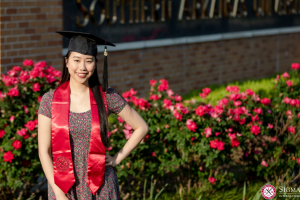An important component that needs to be addressed in our classrooms today is current and relevant social issues within our nation, while allowing students to identify and potentially correct these issues with the help of literature. There are numerous social issues that can be addressed in our English classes, but most are controversial in nature, which may not sit well with administration and households. Censorship and ignorance are often practiced nowadays, teachers carefully selecting literature, developing lesson plans, and narrowing discussion topics in order to avoid controversy that social issues like “violence, hunger, international terrorism, inflation, and inequality” bring (Cohen).
This has become a leading problem in the classroom. Administration and teachers alike have become nervous to discuss controversial themes and issues addressed in literature. Even in classics like J. D. Salinger’s The Catcher in the Rye (1951) or Beatrice Spark’s Go Ask Alice (1979), the talk of taboo subjects like racism, drug use, or the stigma that stems from mental illness is often neglected, as if these issues will disappear in our own society by sweeping them under the carpet. Students need to be exposed to these controversial themes in order to know what they are up against in the real world. Literature is supposed to capture elements of the world we live in; why can’t classrooms discuss them? A classroom is supposed to be an environment encouraging learning. I have come to realize that becoming a contemporary English teacher is going to be challenging.
Yet, I do not give up hope. To be a strong teacher is to be daring and to take risks. This means the discussion of controversially relevant issues through literature needs to happen. Students deserve to know about the possible issues in the real world; perhaps through literature they can come to find or synthesize their own solutions regarding current societal issues. Of course, reading and discussing the texts as they are will not be enough to push for reform. Teachers need to implement a variation of the following three methods in order for their students to be emotionally intelligent, critical thinkers, and problem solvers.
1. Selecting Challenging Literature
Lesson planning and in-class discussions revolve around the text that is selected by the educator. If a teacher selects works that are safe reads, that do not discuss nor explore controversial issues historically or currently, they are not challenging students’ minds or emotional complexity. Therefore, they are making reading lifeless and unimportant. By reading controversial texts like Mark Twain‘s The Adventures of Huckleberry Finn or Harper Lee‘s To Kill a Mockingbird, students are able to experience social issues like racism, sexual assault, wrongful persecution, and injustices in history. Students may be able to find parts of their own identities within texts like these, or if not, they are taught to be compassionate.
2. Extending Learning Beyond Classroom Perimeters
Teaching methods that push a social reformist agenda must focus on skill-building for the real world. In order to build students’ skills within the real world, teachers need to develop a curriculum that “involves active participation through ‘doing'” (Zuga). The question left is how does a high school English class allow students to actively participate based on texts they have to read? Zuga believes it is simple: “[C]urriculum [should involve] student self-government, the evolution of a community consciousness on the part of students, and group project work which focused on the school, local, national, and international communities.” True learning and comprehension is through witnessing, becoming engaged with the community or social issue that is discussed in literature.
3. Encouraging Compassion in our Students
In-class discussions should enable students to begin thinking about solutions to many of society’s problems. Open discussions about controversial texts and extra-curricular experiences will awaken students’ emotional intelligence, or pathos, a driving force to enact change. Discussions can start with the selected text, like how racism plays a significant role in To Kill A Mockingbird. Then, teachers can play on students’ experiences, perhaps in homeless shelters, schools, protests, or other extracurriculars that have been assigned out of class. Again, students can also discuss their own personal experiences, establishing a relationship between them, a family member, or friend with a large societal issue, like racism. This scaffolding of experience and the frustration from such social issues can then lead to youth-led change.
Overall, incorporating social issues within the classroom is meant to force teachers to step outside the barriers of the classroom environment, introducing students into the real world and its issues through text selections, extracurricular participation, and in-class discussions. And by stimulating their emotional intelligence through reading, witnessing, and discussing, students and English teachers alike can then become activists for change.
References
Cohen, L. “Section III. Educational Philosophies.” Philosophical Perspectives in Education. 1999, www.oregonstate.edu/instruct/ed416/PP3.html.
Lynch, M. “Philosophies of Education: 3 Types of Student-Centered Philosophies.” The Edvocate, 2016, www.theedadvocate.org/philosophies-education-3-types-student-centered-philosophies/.
Zuga, F. “Social Reconstruction Curriculum and Technology Education.” Journal of Technology Education, 1992, vtechworks.lib.vt.edu/bitstream/handle/10919/8520/zuga.pdf?sequence=1&isAllowed=y.
 Mary Elizabeth Foley
Mary Elizabeth Foley
M.Ed. Student & Writing Center Tutor
Alpha Theta Rho Chapter, President
University of Massachusetts Lowell, MA
Sigma Tau Delta
Sigma Tau Delta, International English Honor Society, was founded in 1924 at Dakota Wesleyan University. The Society strives to
- Confer distinction for high achievement in English language and literature in undergraduate, graduate, and professional studies;
- Provide, through its local chapters, cultural stimulation on college campuses and promote interest in literature and the English language in surrounding communities;
- Foster all aspects of the discipline of English, including literature, language, and writing;
- Promote exemplary character and good fellowship among its members;
- Exhibit high standards of academic excellence; and
- Serve society by fostering literacy.
With over 900 active chapters located in the United States and abroad, there are more than 1,000 Faculty Advisors, and approximately 9,000 members inducted annually.
Sigma Tau Delta also recognizes the accomplishments of professional writers who have contributed to the fields of language and literature.
Sigma Tau Delta accepts submissions to our blog, WORDY by Nature, throughout the year from all membership categories (students, Advisors, and alumni). If you are interested in submitting a blog, please read the Suggested Guidelines on our website to check if your topic is a good fit and to verify your article is correctly formatted. Email any questions and all submissions to: submit@wordybynature.org.








Add Comment